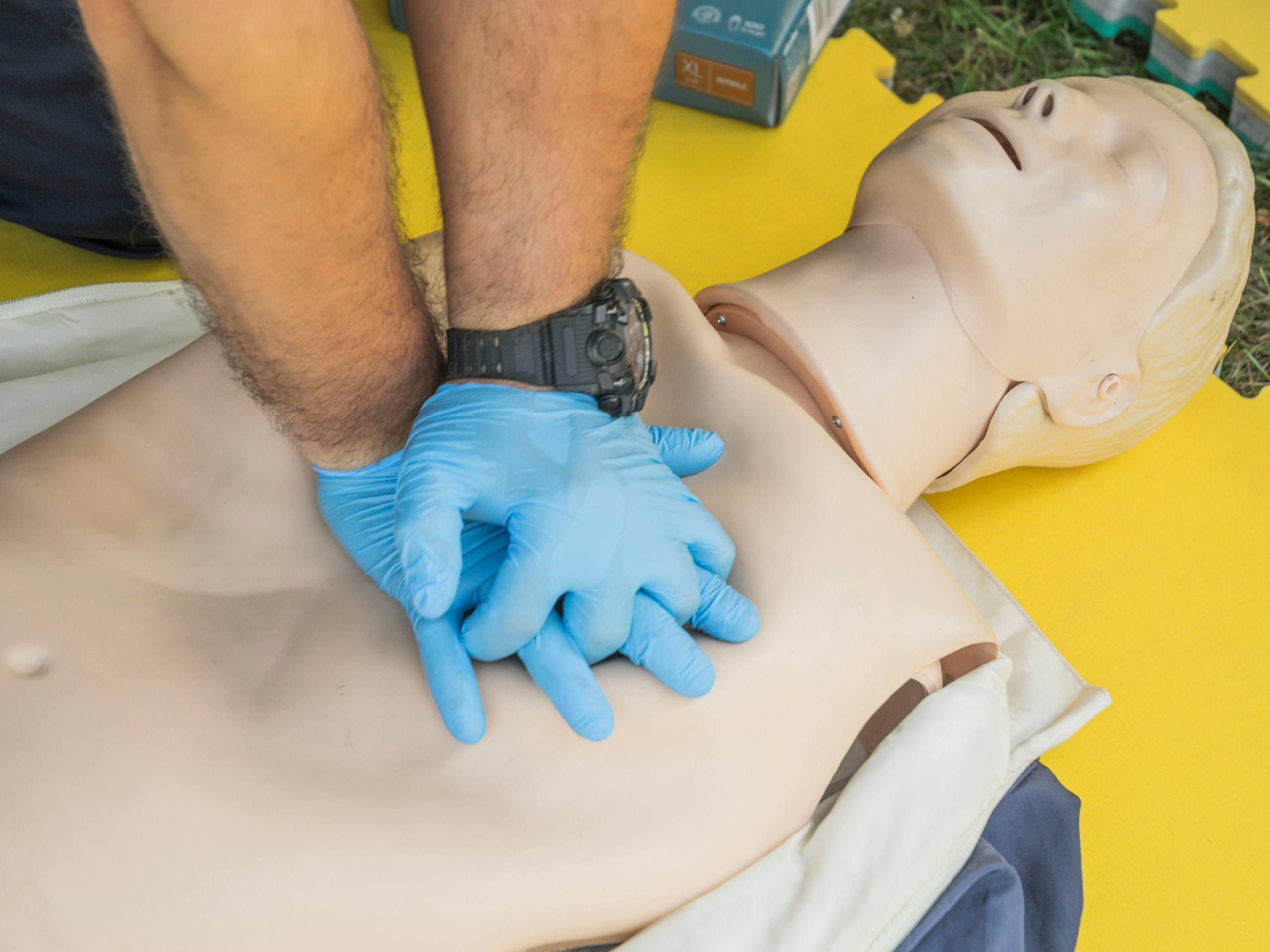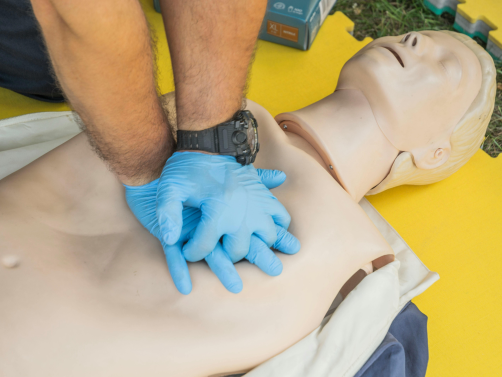When it comes to CPR (Cardiopulmonary Resuscitation), misinformation is everywhere. These myths can prevent people from stepping in to help when every second counts. At Survival CPR, we believe knowledge is power—and in this case, it could be life-saving.
Separate fact from fiction and empower yourself to act confidently in an emergency.
Busted with the Facts That Matter
Myth #1: “CPR is only for medical professionals.”
- Fact: Anyone can learn and perform CPR — and everyone should! You don’t need to be a doctor or nurse to make a difference. In fact, bystanders who take action before paramedics arrive can double or even triple a person’s chance of survival.
Myth #2: “You might hurt the person if you do CPR incorrectly.”
- Fact: Doing something is always better than doing nothing. While it’s true that CPR can sometimes result in cracked ribs, that’s a small price to pay for saving a life. When someone’s heart has stopped, they’re already in a life-threatening situation—your efforts could be the reason they survive.
Myth #3: “If someone is breathing, they don’t need CPR.”
- Fact: Not always true. Some cardiac arrest victims might gasp or exhibit irregular breathing (agonal breathing), which can be misleading. If a person is unresponsive and not breathing normally, it’s time to start CPR.
Myth #4: “Mouth-to-mouth is always required.”
- Fact: Not anymore! For adult cardiac arrest victims, hands-only CPR (just chest compressions) is proven to be highly effective and is now recommended by many emergency response guidelines. Mouth-to-mouth is only necessary in certain cases like drowning or for children.
Myth #5: “Once CPR is started, you can’t stop.”
Fact: You can and should stop CPR when:
- The person shows signs of life
- A trained professional takes over
- You are physically unable to continue
CPR isn’t about perfection—it’s about action.
The more people who understand the truth about CPR, the more lives we can save. Debunking these myths is just the first step. Consider taking a certified CPR course to equip yourself with practical, life-saving skills.
Book your training with Survival CPR today.

Head Injuries in Children
The World Head Injury Awareness Day falls on March 20th every year and it looks at the number of people who suffer from a mild bump on their head to severe brain injury. The purpose of this day is to remind us of how we could reduce accidents and brain
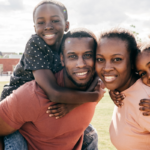
Top tips for staying healthy
Here are some tips for parents to help keep their children healthy during the colder seasons. Practice good hygiene: Encourage your children to wash their hands frequently and cover their mouths when coughing or sneezing. This can help prevent the spread of germs and illnesses. Dress appropriately for the weather:

How CPR saves lives
Knowing CPR can save someone’s life, our trauma expert, owner and founder of Survival CPR, Sister Catherine Rodwell, explains what CPR is, who can do and why it is so important that anyone (especially those in any caregiving role such as a parent or nanny) should take a course and keep
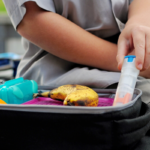
Return to School Safely
As schools have started in January, it is important that CPR and First Aid training is in place to ensure a safe return. It is vital that the school staff receive full CPR and First Aid training and are confident and are competent and most importantly, are up-to-date with their
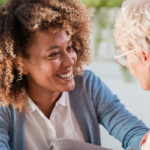
Are you looking to employ a Caregiver?
We provide a platform to assist employers and families with their search for qualified and professional Caregivers, (we do not employ Caregivers directly or provide home care directly.) We understand how important it is to find a suitable and qualified caregiver for your specific needs. This platform has been designed to
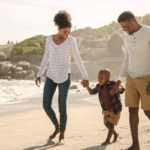
10 Summer Safety Tips
Holiday time is important, so that you and your family get to spend quality time together. Whether you are going away on holiday or staying at home, here are our 10 Summer Safety Tips to keeping the family safe. Make sure you have a fully stocked First Aid Kit Make

Sunburn in childhood increases the risk of developing skin cancer
Sunburn in childhood increases the risk of developing skin cancer If you help children to develop good sunscreen habits from an early age you are protecting them from skin problems later on in life. Make it part of your routine to apply sunscreen in the morning before you leave for

Home safety checklist
Home Safety is important so as to avoid accidents! Do you know how to make your home safe for your child? You may think of all the obvious dangers, but it is so important to check that your house is accident-proof for your child. For most of us, the word

First Aid Treatment for Burns
First Aid Treatment for burns, (any second degree or third degree burn requires medical attention ASAP!) Remove the person from the hazardous area. Cool down the burn site for at least 15-20 min under running water – this is the golden rule. Meat (flesh) continues to cook even when it is removed

